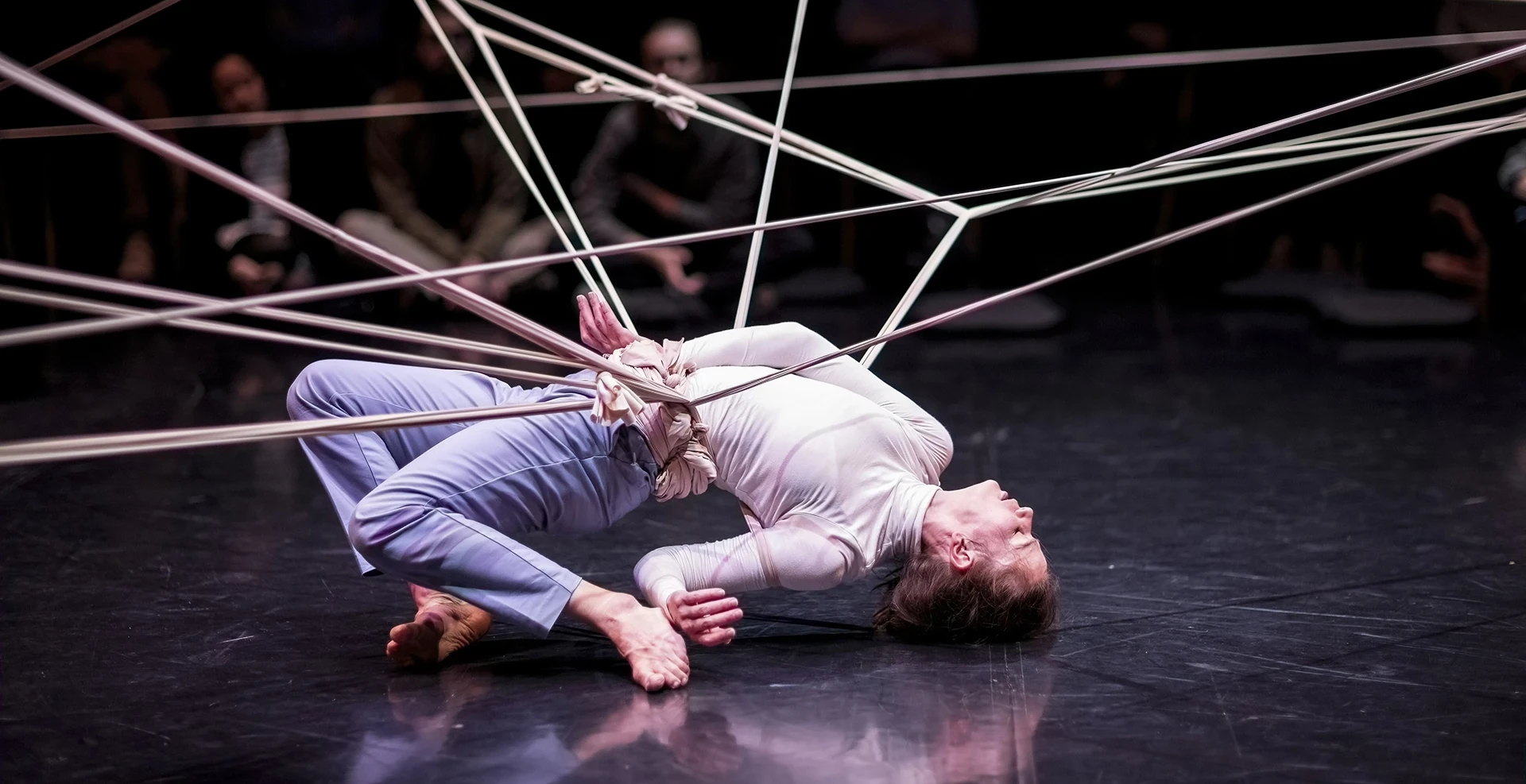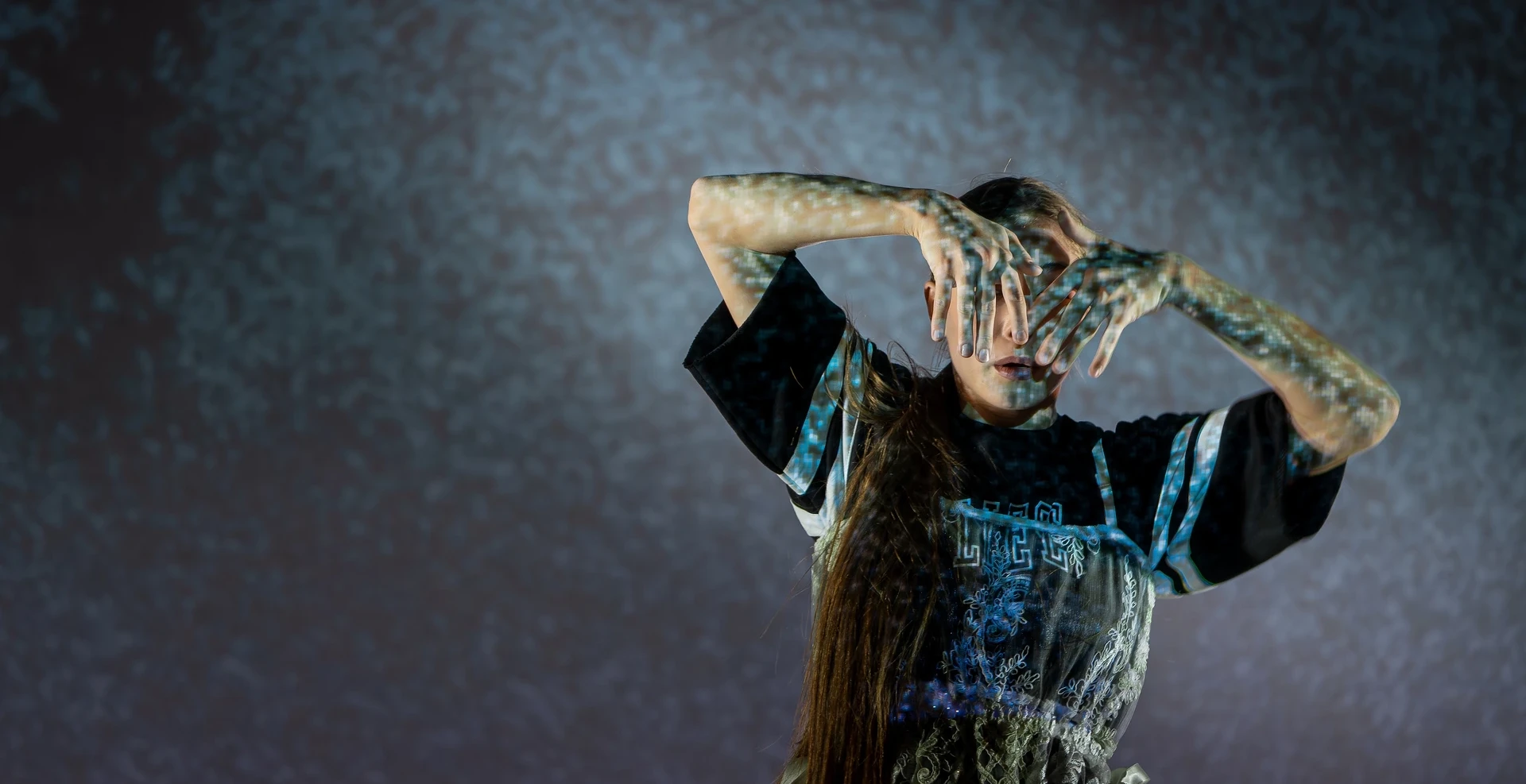
Slovak cultural scene against right-wing nationalist politics, #1 - 2025
A text by Michal Hvorecky
On October 21, 2024, a guest performance was to take place at the Slovak National Theater in Bratislava as part of the Drama Queer Festival. The renowned Studio Hrdinů (Studio of Heroes), which has been voted Theater of the Year by critics several times in recent years, was to travel from Prague. Hundreds of tickets had already been sold and the audience was eagerly awaiting the award-winning production “Měsíční kámen” (The Boy Who Didn't Exist), based on the novel of the same name by Icelandic author Sjón. The lyricist and writer wrote lyrics for Björk (“Isobel”, “Joga”, ‘Bachelorette’) and - together with Lars von Trier - also the lyrics for the postmodern musical “Dancer in the Dark”. The novel is set in 1918, when the Spanish flu was raging in Iceland and independence was finally achieved. In the middle of it all is a boy, an unemployed orphan and illiterate. The cinema junkie found salvation in silent movies -- and in the beautiful Sóla. She whisked him away from the darkness on her motorcycle and showed him what happens when you stay true to yourself to the end. A book and a play about fragile identity and great freedom, a beautiful miniature about emancipation and individual liberation a hundred years ago and today.
But the guest performance was not allowed to take place. Zuzana Ťapáková, the new director of the Slovakian National Theater on the banks of the Danube, decided at short notice not to sign the contract for the performance. The international Drama Queer Festival had been working with the National Theater in Bratislava since 2018 and regularly used it as one of its venues. Ťapáková has only been the director of the National Theater since August 27, 2024, since the hot “summer of purges” in the entire Slovakian cultural sector. The directors of almost all important cultural institutions (Bratislava Art Gallery, Bibiana Children's Cultural Center, National Library, National Theater, National Gallery and National Museum) were dismissed in a cultural purge. The cancellation of the play “The Boy Who Didn't Exist” took place just a few days before the second anniversary of the brutal terrorist attack on Zámocká Street in Bratislava, in which a right-wing extremist high school graduate murdered two queer people outside a bar and seriously injured a young woman. A deep trauma for the community, for the city, for the country.Director Ťapáková was appointed by Culture Minister Martina Šimkovičová, who is known for her repeated homophobic statements. In August, Šimkovičová said that the “extinction of the white race is caused by LGBTQ+ people”. Regarding the culture in the country, she said it must be Slovak and nothing else.
Back in spring 2024, she tried to take down a painting by Andrej Dúbravský, one of Slovakia's most important contemporary artists and an international star. She saw it at an exhibition in the Broadcasting House and didn't like it because it depicted a naked man. She thought it was perverse and harmful.
“I certainly won't sign contracts two to three weeks before a guest performance or festival participation; that's unacceptable for a theater where planning is done six months, a year or even two years in advance,” Ťapákovák explained her decision in the independent daily N. Chief dramaturge Miriam Kičiňová disagreed with her - more than four weeks before the performance is quite enough to sign such a simple contract. Theater maker Róbert Pakan, long-time director of the Drama Queer Festival, spoke of censorship, discrimination and an international scandal.
The Otvorená kultúra (Open Culture) initiative, which has been protesting against the new state cultural policy for a year, also believes that the rejection confirms the government's plan to boycott all queer art forms. “The real reason for not signing the contract is the fact that the production is part of the Drama Queer Festival and contains homoerotic scenes,” says Offene Kultur.
The case is typical of the current tense situation in Slovak culture. The decision of the director of the National Theater is legal, but not transparent, not fair, harmful to cooperation with foreign partners, and it corresponds to the ideology of the new right, which is trying to discriminate against minorities in Slovakia, intimidate critical voices and divide society even more deeply. Instead of conducting transparent job interviews, bizarre people from the closest circle of the Minister of Culture are now being appointed to the top positions in cultural institutions. The new head of the National Museum Anton Bittner, for example, a junior financial manager with a passion for esotericism, has never worked in a museum or cultural institution. The new head of the Children's Cultural Center, Bibiana, got the job as a direct neighbor of the controversial culture minister.
Martina Šimkovičová represents radical nationalist attitudes and spreads almost exclusively conspiracy myths. She is a well-known right-wing influencer and ran her own internet disinformation channel called TV Slovan (Slav) for years. She propagates a return to supposed, idealized Slavic primitive states that never really existed. The Putin-friendly populist has long been regarded as the gateway for pro-Kremlin propaganda in Europe. But in reality, Šimkovičová has no vision, no strategy for culture in Slovakia. The ministry is actually headed by Lukáš Machala, an anti-Semitic agitator, racist and conspiracy theorist. He is also the one who wants to control the public media. On July 1, 2024, the government dissolved the public broadcaster RTVS on the initiative of the Ministry of Culture and transformed it into the state broadcaster STVR. During a television appearance in April, Machala doubted that the earth was round. And the word continues to spread: The Illuminati want to conquer the EU through migrants* and a “Jewish mafia” wants to take over world domination through the wars in Israel and Ukraine. This is an extremist, ethnic world view and unacceptable in a democratic European country.
As a result of these incidents, culture has become a major social issue in Slovakia. It is new that masses of the public are interested in what is happening in culture and that they are protesting loudly. There were large demonstrations in 30 cities and municipalities, a warning strike and two petitions with around 190,000 signatures. But Šimkovičová remains in office. The critical public in the 21st century must look for new, innovative forms of protest. Particularly in an age of multiple crises, we should invest significantly more in culture and education and consider them a priority for society. We are obviously doing far too little in Europe to stop authoritarian tendencies. I grew up in a dictatorship. I was 13 when the democratic change and the opening came. I want my children to be able to live democratically too. Culture is an option to finally strengthen democracy in Dresden, in Bratislava, in Germany, in Slovakia.


